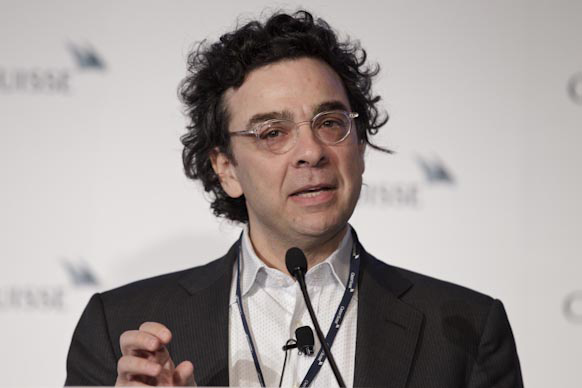Big Data is one of the more interesting intersection points in recent human history (sorry to oversell that, which I admittedly probably did). Here’s what we know:
- C-Suite executives value the idea as a concept, but don’t really know exactly what it is.
- Everyone seems to be talking about it, but we’re not really teaching it properly at the broadest level — so can the next generation hitting the workforce really capitalize on it?
- Right now, it’s one of those things that seems important but isn’t necessarily directly tied to revenue yet at most companies, so … if Big Data doesn’t someday mean Big Money, will people continue to focus efforts there?
- There’s a giant “decision-making” shift in the works here from “Executives relying on their experience and gut” to “People looking at the actual actions of a large swath of consumers and making determinations there.” That kind of changes some of the definition of what an “executive” does, right?
You probably know Stephen J. Dubner pretty well by now — or, at the very least, better than you know me — because he’s one of the co-authors of Freakonomics, which is a very successful book (and, later, podcast). He has a new book out called Think Like A Freak, and the publication of that book led him to speak with a Wharton professor named Adam Grant (who’s fairly well-known himself in some of the same circles around maximizing ability and people). An edited transcript is here, and while the whole thing is interesting and you should definitely read it, there’s a good section on Big Data and where we stand with it.
Here’s the section, with Dubner speaking:
What I mean by that is, especially in this era of big data, … we believe that if you get a pile of data representing a million decisions, that that’s better than asking three people what decisions they made. While I very much believe that to be true, and I very much applaud all the instincts for all of us to work with data in aggregate to distill the biggest truths, I also know that we’re humans and that …we’re biased in a lot of ways.
Even if you could tell me or I could tell you the most foolproof strategic way to reach a decision or the best decision to make or the best strategy or the best set of numbers to embrace, there might be a lot of good reasons why you still won’t be successful. That’s because the people that you are now employing that strategy on, or the people that you’re now offering those incentives to, don’t respond the way you think about the problem.
This brings up a whole different set of questions, namely this one big one:
Can Big Data ever really become a massively tangible element of business with all the human biases in its way?
When I first thought about this question, my head immediately went to “Well, maybe when the Baby Boomers retire and/or die off…” That’s a discomforting thought, because my parents are basically Baby Boomers, and I don’t necessarily want to be living in a world where my parents are deceased and my in-laws are my primary familial connection (I suppose millions of others have done this, but I don’t await the day).
I do think that step — the end of the Baby Boomers in the workforce — needs to happen for this to begin to suss itself out, though. That’s a generation that has been working for decades now. They have set beliefs and ways of approaching problems and decisions. For years, “data” was talked about (and maybe embraced at some places), but “gut” could almost always beat it out. They’re going to resist the revolution of “Making decisions off fact.”
When you shift to Gen Y and Millennials as the dominant groups in the workforce, can we start to embrace data more?
Well, yes and no. Obviously we need to teach it more — remember, there’s a difference between “synthesis” and “analysis” when you look at a collection of information — but we also need a way to push through these biases referenced above.
Human beings are a fickle people; they’re (almost always) going to look at look at a set of information and perceive it one way, even if the information is completely leading in the opposite direction. I’ve sat in probably 1,261 meetings in my relatively short career where that’s happened — a set of data is presented, and some senior manager pipes up and says the data might not be right, or might reflect the wrong context of testing/experimenting, and gradually people start to agree (or at least be influenced by) with the senior manager.
We have beliefs and biases, and just because we have a sample of 500,000 instances of something happening doesn’t mean those beliefs and biases are suddenly going to fade away.
Think about this in your own personal life, right? Let’s say you have a close relative who’s deeply depressed and, as a result, puts him/herself in challenging, worrisome situations. I know people like this and, frankly, I’m related to people like this. Every data point you get — distressed calls, ambiguous phone/social media updates, questions about how they deserve to be loved, etc. — points to one conclusion: “This person needs more support and help.” You know how families tend to operate in those situations? “This will be OK, we can manage it and it will go away.”
That’s an example of “data” being smashed to the ground by “beliefs and biases.” If it can happen in the space where things really matter — family — then it can easily happen in business, which is ultimately more of a means to an end for most non-engaged employees anyway.
What do you think: can “Big Data” ever totally convince people to abandon their beliefs and biases?

One Comment
Comments are closed.